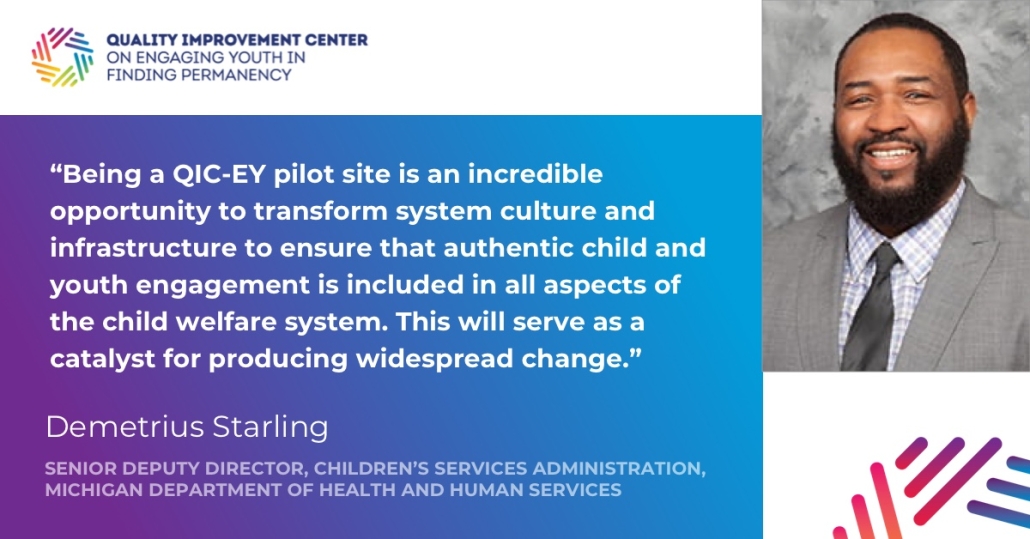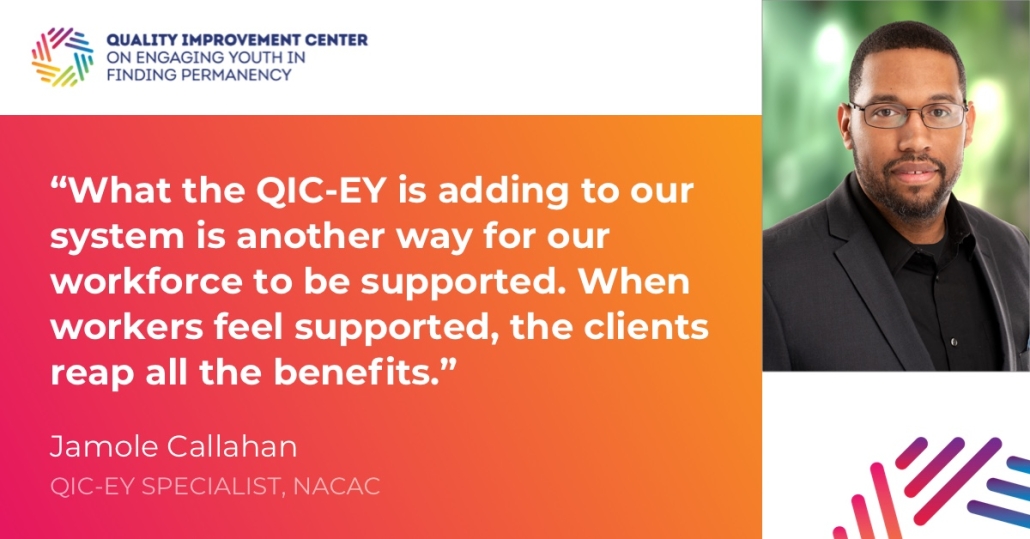Helpful Links
Pilot Sites
QIC-EY Products
Contact Us
Privacy Policy
Cookies Policy
Join the Mailing List
Join our mailing list to receive quarterly updates on the QIC-EY including products being released, training opportunities and other information to help inform your work on youth engagement.

This website is supported by the Administration for Children & Families (ACF) of the United States (U.S.) Department of Health & Human Services (HHS) as part of a financial assistance award totaling $5,000,000 million with 100 percent funded by ACF/HHS. The contents are those of the author(s) and do not necessarily represent the official views of, nor an endorsement by, ACF/HHS or the U.S. Government. For more information, please visit the ACF website, Administrative and National Policy Requirements, at https://www.acf.hhs.gov/administrative-and-national-policy-requirements.


